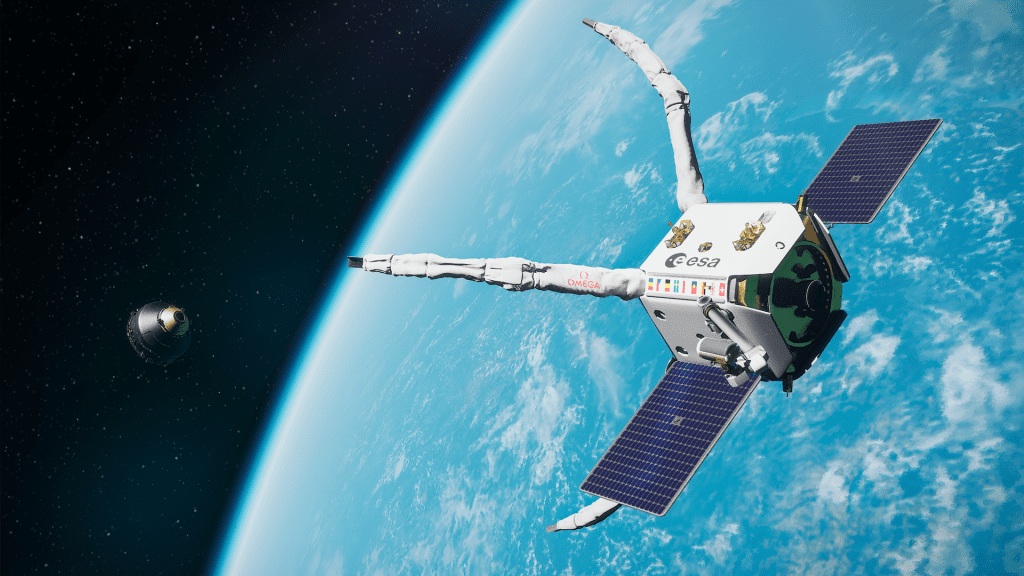SAN FRANCISCO – The European Space Agency has given the green light to significant alterations in the ClearSpace-1 debris-clearing undertaking.
In the newly endorsed strategy by ESA’s Space Safety Programme Board, OHB SE of Bremen, Germany, will furnish the satellite bus and take charge of systems integration and launch. Swiss startup ClearSpace will supervise the approach and capture of the mission’s new debris target, ESA’s Project for On-Board Autonomy-1 (PROBA-1) satellite.
Originally, the ClearSpace-1 mission was set to seize a Vega rocket payload adapter, Vespa. In August, the U.S. Space Force’s 18th Space Defense Squadron alerted ESA of debris in the proximity of Vespa, hinting at a likely collision. debris in the vicinity of Vespa, indicating a probable collision.
The new target, Proba-A, is a 94-kilogram ESA technology demo launched in 1998.
Following the encounter, ClearSpace-1 is anticipated to capture Proba-A using a four-armed mechanism. Subsequently, the two objects will disintegrate in Earth’s atmosphere.
“We will continue to push the limits of in-orbit maintenance and establish the groundwork for sustainable space operations,” ClearSpace CEO Luc Piguet remarked in a statement. “We believe that a strong collaboration between startups and established major contractors showcases the best of both worlds to create reliable, competitive, and scalable products and services.”
The 112-kilogram Vespa is in an orbit of about 801 by 664 kilometers. Proba-A is in a 681- by 561-kilometer orbit.
ESA picked Clearspace for the ClearSpace-1 mission in 2020. In 2023, Clearspace secured a booking for an Arianespace Vega C rocket for the journey. Under the new plan approved by ESA’s Space Safety Programme Board, OHB SE of Bremen, Germany, will provide the satellite bus and lead systems integration and launch. ESA selected Clearspace for the ClearSpace-1 mission in 2020. In 2023, Clearspace booked an Arianespace Vega C rocket for the flight.









